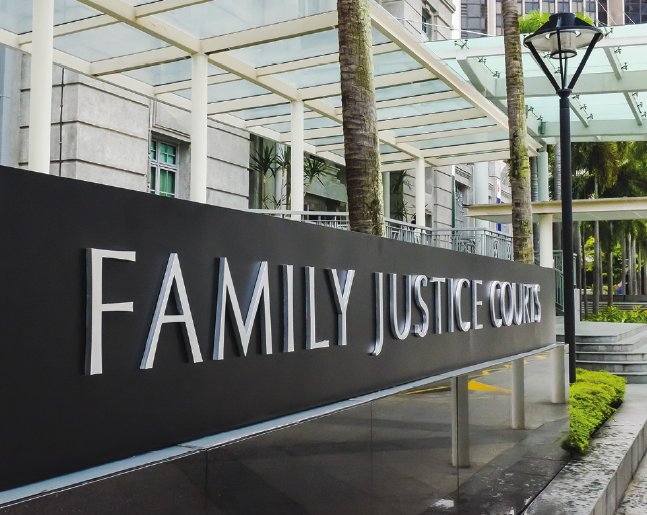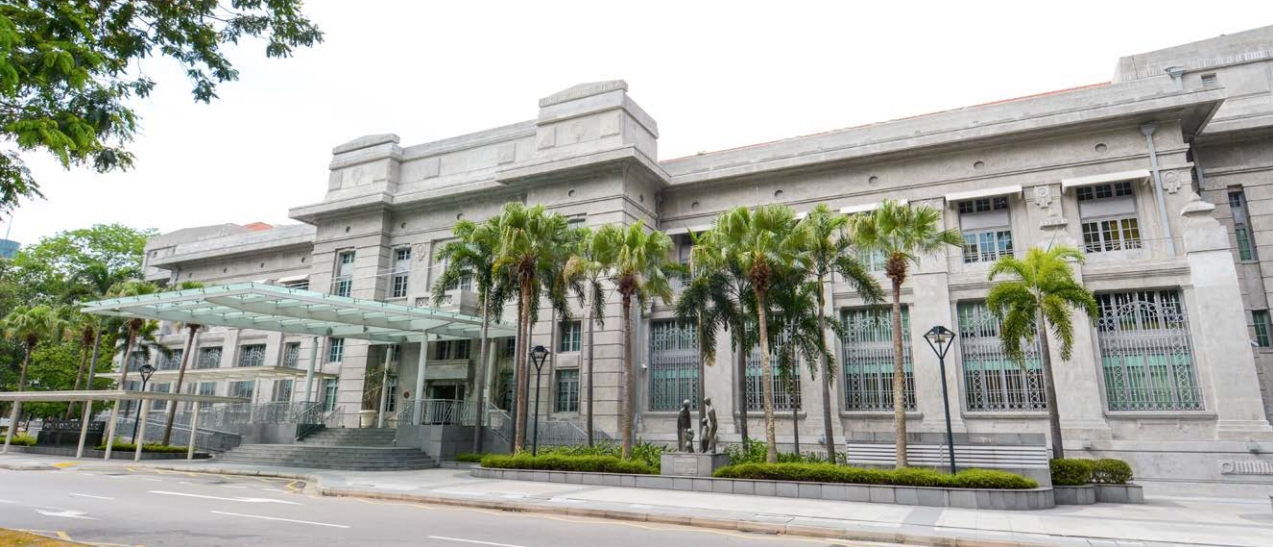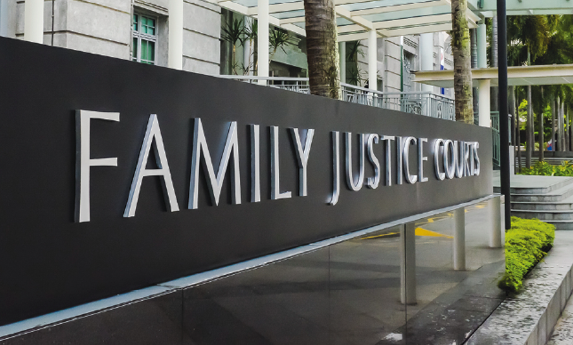A week ago, Lee Hsien Yang and Lee Wei Ling chose to go public with their private grievances against their brother Prime Minister Lee Hsien Loong over the fate of the late Lee Kuan Yew's house at 38 Oxley Road.
By now, the whole of Singapore should be aware of the allegations and accusations publicly levelled at both sides in what was originally a private family affair for the Lees. The issue will even be aired in Singapore's premier platform for debating public issues -- Parliament -- in a sitting on Jul. 3.
The public nature of the Lee family feud, and the platform selected to address the issues in the dispute are exceptions, compared to how other family disputes are mediated.
In Singapore, family disputes are often taken to the Family Justice Courts (FJC) for the cases to be heard and judgments to be meted out.
 Photo adapted from FJC brouchure
Photo adapted from FJC brouchure
However, due to the sensitivity and emotional nature of family disputes, the costly process of litigation, which often involves court hearings in an adversarial setting, may not benefit or restore relationships within a family.
Acknowledging this nature of family disputes, FJC says on its website:
"Family disputes are typically emotionally charged as they go to the heart of familial relations. When any matter of the family is brought to Court for adjudication, the process can be expensive, stressful and upsetting for all involved.
As parties will have on-going relationships as family members, often times, the process of litigation and eventual decision by the Court may not ultimately resolve the relational aspects of the dispute."
 Family Justice Courts at Havelock Square. Source: State Courts Annual Report 2013
Family Justice Courts at Havelock Square. Source: State Courts Annual Report 2013
In order to better manage and resolve family disputes, FJC also has in-house specialists to provide counselling and mediation to help parties reach amicable resolution to their family disputes without going to court.
"The Family Justice Courts have been constituted to help parties resolve family disputes, as far as possible, in a less acrimonious way through the use of counselling and mediation provided by in-house specialists. All cases coming before the court will be managed pro-actively by judges from the start and where necessary, the Court can direct that parties undergo counselling and mediation to try and reach amicable resolution of their disputes instead of proceeding with adjudication."
How does counselling help?
Counselling helps parties in a family dispute to gain insights and strategies to better manage both personal and relationship issues in a dispute.
[caption id="" align="aligncenter" width="800"]
According to FJC, these are the advantages of counselling for parties:
- Professional help in dealing with their emotional and relational issues;
- Help improve communication;
- Better understanding of the psychological aspects behind the dispute; and
- Being able and ready to find solutions and closure.
How does mediation help?
Mediation is a common option used to resolve disputes without going to court. It is a relatively low-cost process that involves a neutral third party as mediator. At FJC, appointed judges or volunteer legal professionals served as mediators in family disputes.
[caption id="" align="aligncenter" width="456"] Source: MinLaw website[/caption]
Source: MinLaw website[/caption]
During mediation sessions, parties can communicate openly with each other and explore options to resolve a dispute with the mediator's assistance. Mediation sessions aim to improve communication between the parties and help parties find mutually acceptable and sustainable resolutions for their disputes.
According to FJC, the benefits of mediation include:
- Can save time, money and stress;
- Can learn better ways of dealing with conflict;
- Children benefit from parents taking more responsibility; and
- Feel more empowered by making their own decisions.
Perhaps the best thing about the use of counselling and mediation to resolve family disputes is that, unlike open court hearings, these are conducted in strictly private settings without any risk of private family matters being aired in public.
Bottomline is not all family disputes should be aired publicly or in Parliament.
More information on the FJC can be found here.
Also, keep up with the Lee family saga and its developments here:
Top image from Family Justice Courts' brochure.
If you like what you read, follow us on Facebook and Twitter to get the latest updates.
If you like what you read, follow us on Facebook, Instagram, Twitter and Telegram to get the latest updates.

